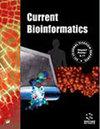LBSA-DRIVER:利用基于列表的模拟退火法识别癌症驱动基因的新方法
IF 2.4
3区 生物学
Q3 BIOCHEMICAL RESEARCH METHODS
引用次数: 0
摘要
简介癌症驱动基因是导致癌症发生的基因,因此,识别癌症相关基因对促进癌症治疗至关重要。在大量正常客体基因中识别癌症驱动基因的准确性直接影响着治疗方法的效果。研究目的本研究旨在利用基于列表的模拟退火(LBSA)优化技术有效识别癌症驱动基因。方法:所提出的模型(LBSA-DRIVER)在双态网络中利用基于列表的模拟退火算法来精确定位癌症驱动基因。这一过程首先要创建一个双栅格图,将基因突变和表达数据从精心选择的数据集中整合到一起。然后将 LBSA 算法应用到生成的图中,对基因进行识别和排序,并从生物交互网络中汲取灵感。结果算法开发完成后,我们使用癌症基因组图谱(TCGA)数据库中的四个基准数据集进行了严格的实验分析。这些数据集包括乳腺癌数据集(BRCA)、前列腺癌数据集(PRAD)、卵巢癌数据集(OV)和多形性胶质母细胞瘤数据集(GBM)。结论我们的研究结果,包括精确度、召回率、F-分数和准确度指标,有力地证明了所提出的模型在识别驱动基因方面的有效性。本文章由计算机程序翻译,如有差异,请以英文原文为准。
LBSA-DRIVER: A Novel Approach to Identifying Cancer Driver Genes Using List-Based Simulated Annealing
Introduction: Cancer driver genes are genes responsible for cancer genesis; thus, identifying cancer-related genes is crucial in fostering cancer treatment. The accuracy in identifying cancer driver genes within the vast pool of normal passenger genes directly influences the efficacy of treatment approaches. Objective: This research aimed to effectively identify cancer driver genes using the List-based Simulated Annealing (LBSA) optimization technique. Method: The proposed model (LBSA-DRIVER) harnesses a list-based simulated annealing algorithm within a bipartite network to pinpoint cancer driver genes. The process begins with creating a bipartite graph that integrates gene mutations and expression data from carefully chosen datasets. The LBSA algorithm is then applied to the generated graph to identify and rank the genes, drawing insights from a biological interaction network. Result: Following the algorithm's development, rigorous experimental analyses have been conducted using four benchmark datasets from The Cancer Genome Atlas (TCGA) database. The datasets used were the Breast Cancer dataset (BRCA), Prostate Adenocarcinoma dataset (PRAD), Ovarian cancer dataset (OV), and Glioblastoma Multiforme dataset (GBM). Conclusion: Our findings, including precision, recall, F-score, and accuracy metrics, provide strong evidence of the effectiveness of the proposed model in identifying driver genes.
求助全文
通过发布文献求助,成功后即可免费获取论文全文。
去求助
来源期刊

Current Bioinformatics
生物-生化研究方法
CiteScore
6.60
自引率
2.50%
发文量
77
审稿时长
>12 weeks
期刊介绍:
Current Bioinformatics aims to publish all the latest and outstanding developments in bioinformatics. Each issue contains a series of timely, in-depth/mini-reviews, research papers and guest edited thematic issues written by leaders in the field, covering a wide range of the integration of biology with computer and information science.
The journal focuses on advances in computational molecular/structural biology, encompassing areas such as computing in biomedicine and genomics, computational proteomics and systems biology, and metabolic pathway engineering. Developments in these fields have direct implications on key issues related to health care, medicine, genetic disorders, development of agricultural products, renewable energy, environmental protection, etc.
 求助内容:
求助内容: 应助结果提醒方式:
应助结果提醒方式:


